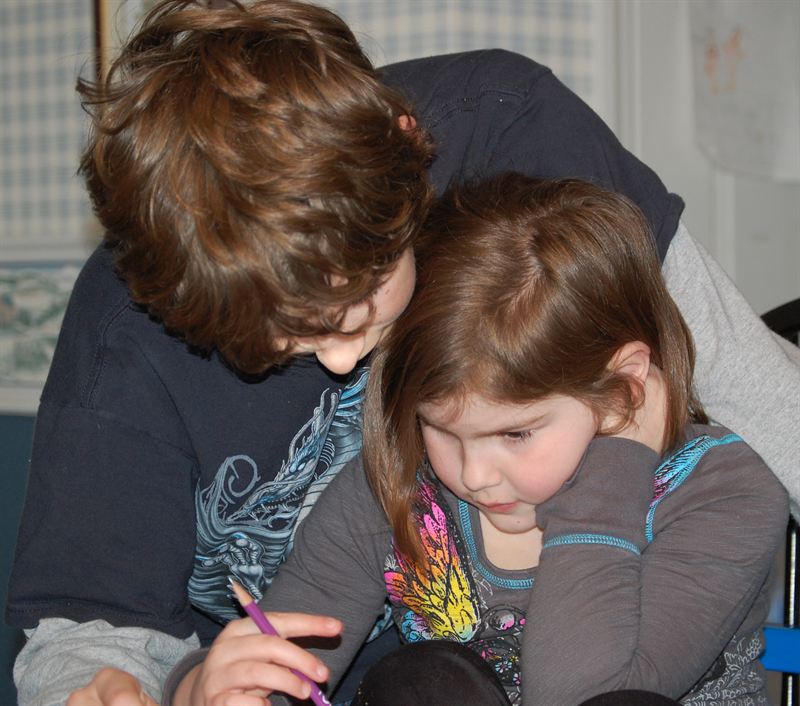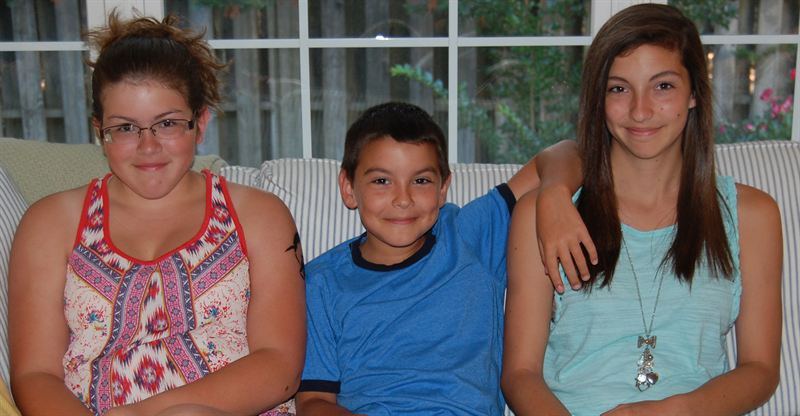Learning Problems Can Be in the Eyes: A Back-to-School Message from the College of Optometrists in Vision Development
In preparation for the new school year, families around the world focus on making sure their children are ready to go back to school. “However, in addition to filling their children’s back-to-school checklists, parents also need to include a very important school supply-an eye examination,” says Dr. Ida Chung, COVD President. “Most parents assume incorrectly that their child can see well enough to learn.”
When a child struggles with reading, attentive parents can often see that something isn’t right. They can see there is something wrong with how their child’s eyes move when he/she is trying to read. Teachers will often tell parents that they think their child has a problem with “tracking.” But when the child is taken to the pediatrician, the parents are told that their child’s vision is fine.
This is what happened for Suzanne Torres, mother of five. When her middle daughter, Mary, was in first grade she starting having difficulties with reading. She knew her “wall words” (individual words put up on the wall for Spelling) and was even ahead of grade level on her words, but she couldn’t recognize these words when they were in a paragraph. The pediatrician said that Mary’s vision was fine. However, Suzanne could see that her daughter’s eyes didn’t seem to move correctly when she was reading.

Mary continued to struggle throughout first grade, and nothing seemed to help. According to Torres, “Her principal was convinced that ‘Reading Support’ was the way to help Mary, so we tried that. And even though we didn’t see any improvement, she was put in Reading Support again in second grade.”
“Once again, she made no progress at all. I questioned the school and was told they had kids sometimes in Reading Support for 8 years or more.” Torres shared her frustration, “I thought that’s all well and good but I kept thinking about Albert Einstein’s definition of insanity: doing the same thing over and over again and expecting different results.” She knew she had to do something different.
“We were beyond frustrated and unable to find an explanation for the difficulty our daughter had reading. It didn’t make sense that she tested above level with her vocabulary words listed in columns but then was unable to read them in a sentence.”
It was time for some serious research. In looking for answers Mrs. Torres stumbled across literature relating her symptoms to the muscles of the eyes. Her daughter was suffering from fatigue, difficulty concentrating or staying on task, and had trouble moving her eyes smoothly. Having five children helped. Torres could easily see something wasn’t right; “Mary would come home from school in tears because she was so exhausted. At that time I didn’t realize it was from her vision. I just knew her problems were so different from our other children.”
“Fortunately we found an eye doctor close to home who had answers,” states Torres. The type of eye doctor Mary saw was an optometrist who provides an in-office program of optometric vision therapy, also known as a developmental optometrist.
Mary had an eye coordination problem called convergence insufficiency, which is a very common condition. It can cause double vision and make words look like they are moving on the page when trying to read.
After treatment for the convergence insufficiency with a vision therapy program Torres reports, “Mary was a changed girl! This year, not only have her grades improved, but she enjoys going to school! She arrives home with a smile instead of tears. Many times she hugs me and tells me how much easier it is for her to read and do math problems now.”
Seeing the changes in Mary, Torres decided to have her other children tested as well. It turned out that Mary’s older sister, Lauren, also had a vision problem. Her symptoms were different and much more subtle. Even though she loved to read, she would get headaches after reading for 20 to 30 minutes and would have to stop reading.
Mrs. Torres states, “Lauren would also use her finger to track her reading, had difficulty focusing, and suffered with dizziness, motion sickness, and headaches. After completing optometric vision therapy, Lauren is NOW a straight ‘A’ student and has also started playing sports. No more dizziness, motion sickness, or headaches. She reads constantly!” Torres proudly shares.

Mary’s younger brother, John, also had a vision problem. Initially the doctor said he might have some issues because he was holding things very close to his face. But John wasn’t even in kindergarten yet so the doctor said to let it go for now, and they’ll revisit it later.
“But sure enough, as first grade was progressing, John seemed to be getting more irritated with school. He didn’t want to do his homework and was very fidgety.” Torres explains, “He was very able to sit with me and have me read a story to him. He could focus on that. We could sit down and play with his Matchbox cars for an hour if we wanted to. But he couldn’t focus on his homework for more than 5 minutes. And I thought all right, maybe that’s just because he’s a boy and he doesn’t want to sit down and do his work.”
As John’s problems increased Torres decided to have John reevaluated, and indeed, John also had convergence insufficiency. After completing vision therapy, Torres shares, “John is able to sit still and focus. He has a longer attention span and will read on his own now.”

“John is now able to connect with a baseball and actually hit it – something he had much difficulty with before vision therapy! Now he enjoys sports and school and is more confident and outgoing.” Torres continues, “One day we were leaving school and he asked me if I would take him back. When I asked him why he said, ‘So I can learn more.’ Before, he never, never wanted to go to school!”
When asked what Torres would like to share with parents everywhere, she said, “How do you make progress in any area if you’re not willing to entertain new information; specifically in the field of medicine? I think that all information, every option, should be supplied to parents. And parents can make up their own minds. They know what’s going to be best for their kids. But what’s frustrating to me is that every option wasn’t being supplied. No one ever said to me that there might be a visual issue.”

Dr. Chung shares, “With the new school year ahead, the message for this year’s August is International Children’s Vision and Learning month campaign is: If your child struggles with reading and learning, make sure you see the right doctor, a developmental optometrist, before you assume your child’s vision is fine.” For more information, visit our website, covd.org.
CONTACT: Pamela R. Happ, MSM, CAE
COVD Executive Director
330.995.0718 tel
Email: phapp@covd.org
Website: www.covd.org
About COVD
The College of Optometrists in Vision Development (COVD) is an international, non-profit optometric membership organization that provides education, evaluation, and board certification programs in behavioral and developmental vision care, vision therapy, and visual rehabilitation. The organization is comprised of doctors of optometry, vision therapists and other vision specialists. For more information on learning-related vision problems, vision therapy and COVD, please visit http://www.covd.org/ or call 330.995.0718.
A series of public service announcements (PSAs) are available at covd.org to help raise awareness that vision problems can not only interfere with learning, but sports performance, and other activities of daily living. These PSAs also address vision problems that impact individuals who have autism spectrum disorders or those who have suffered a head injury.
Tags:





